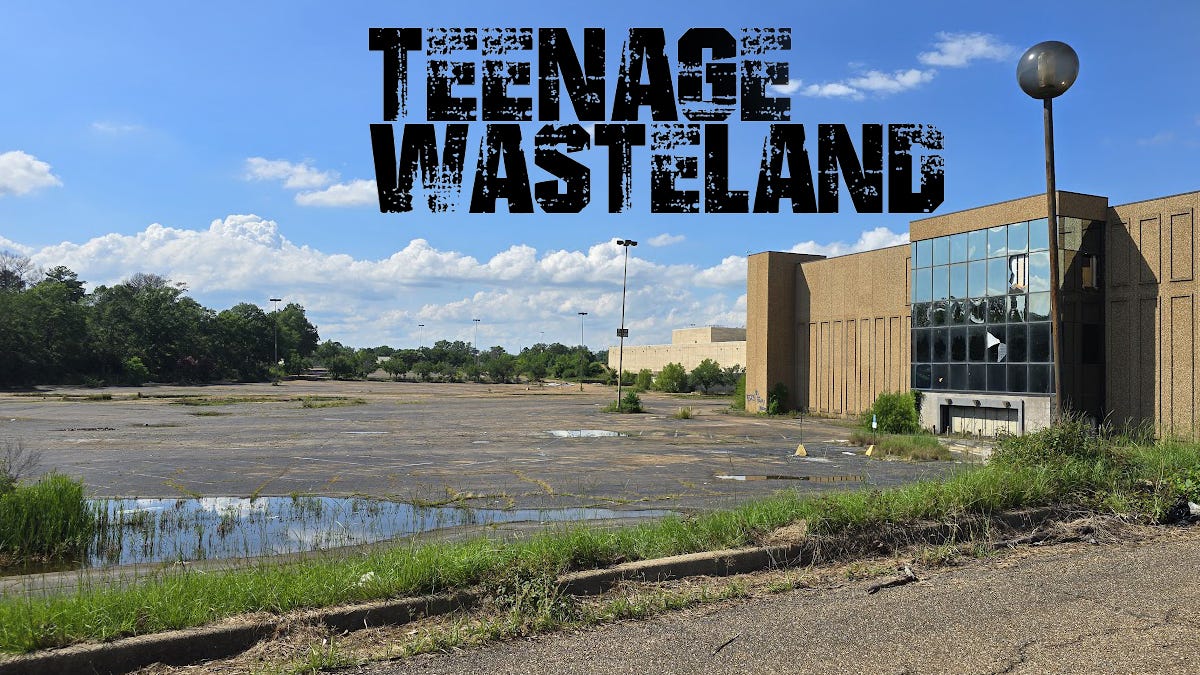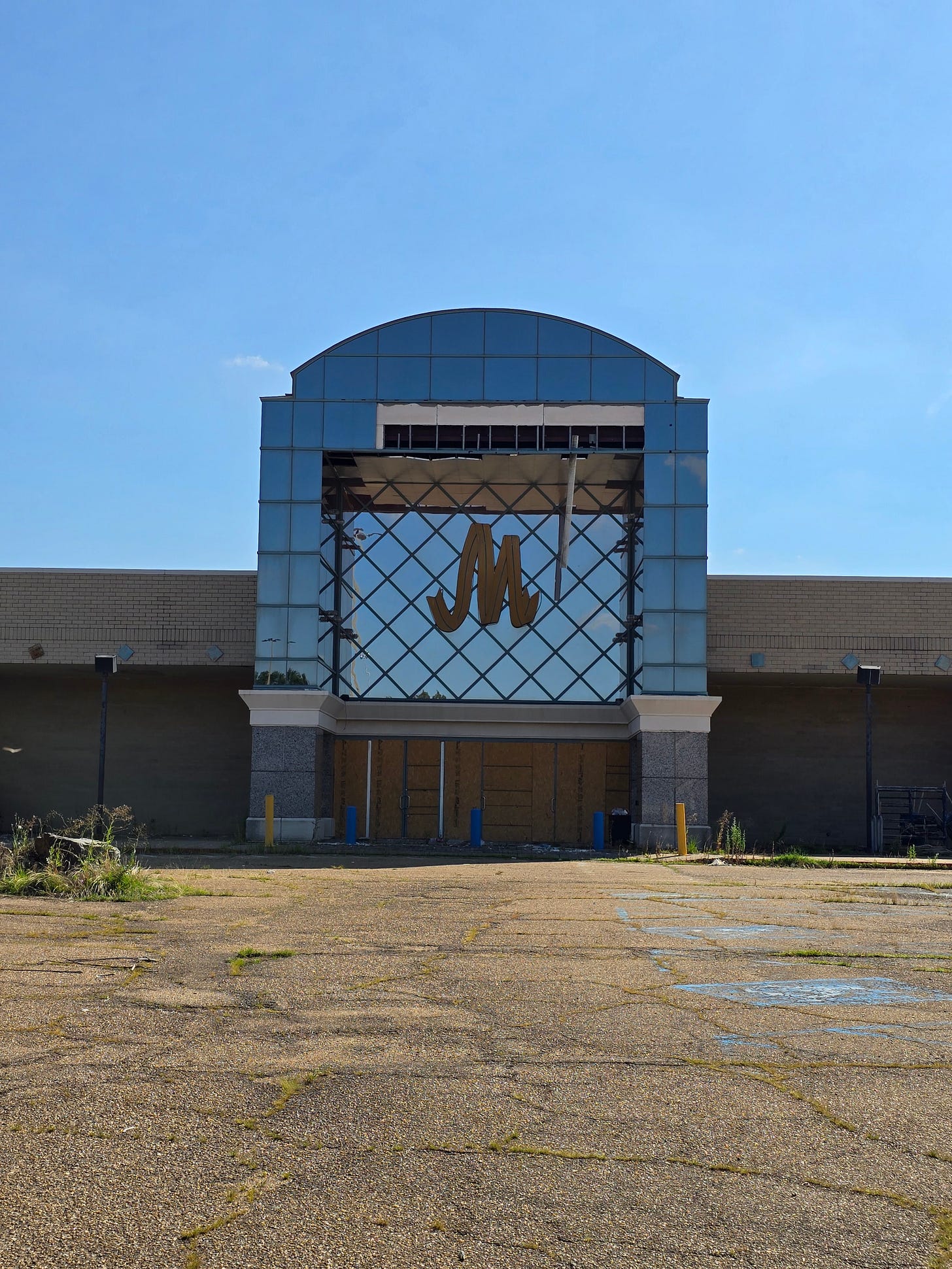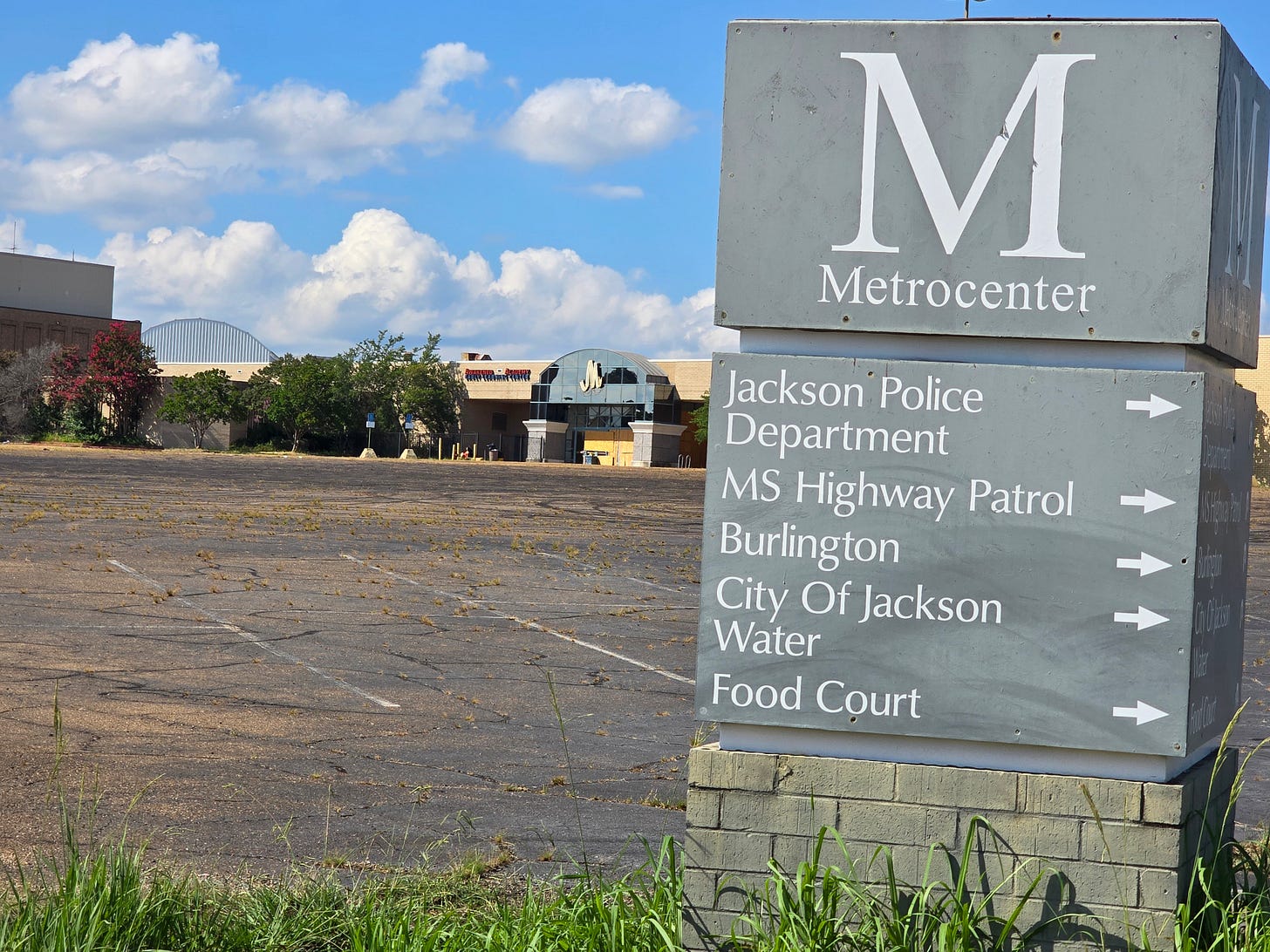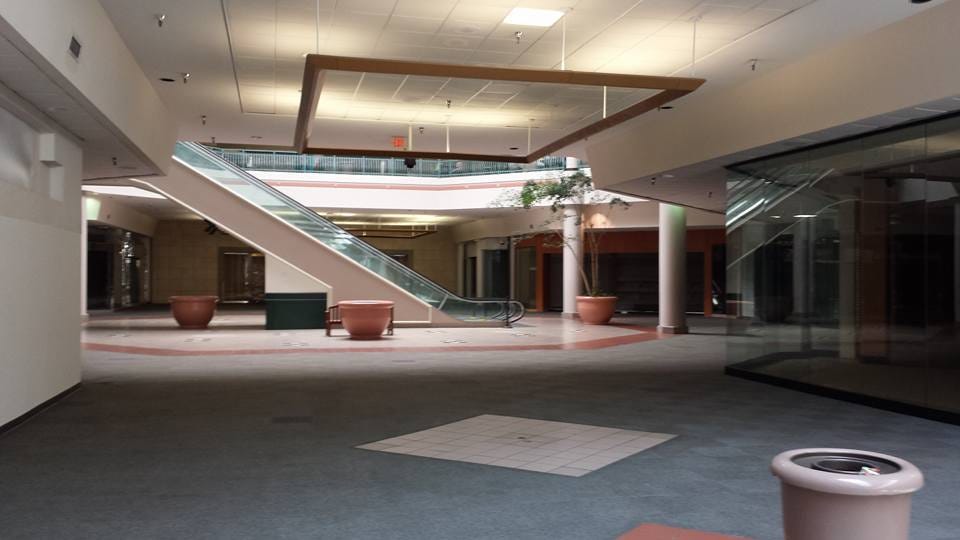The car lurched side to side in a way that felt unsafe. Potholes that rivaled the size of my vehicle made me question my decision to come here, but the allure was too much to brush aside. What was once a two-lane road was winnowed down to a single, meandering lane due to the overgrowth of vegetation threatening to fully engulf the formerly safe passageway while the sharp hills and valleys of what was left of the pavement, but now reclaimed by the Mississippi red clay, made me focus on precision driving. Finally, as the car dodged fallen limbs and discarded tires, the tunnel of trees finally opened up to reveal our destination: the mall.
As the vista before me grew more expansive as we drove closer, so did my astonishment and disappointment. What was once the largest mall in the entire Southeast was now reduced to a vast wasteland to rival any set for the next zombie apocalypse movie. And while zombies staggered in droves to access the mall in George Romero's Day of the Dead, nobody living or dead was currently making this particular mall their destination—except me.
Metrocenter Mall in Jackson, Mississippi, opened its doors in 1978 with 1.2 million square feet of retail space, 100 services and stores on two levels, and a hungry populace eagerly waiting to spend their hard-earned dollars. By the time I made its acquaintance as a child in the mid-'80s, it already had some fierce competition just a few miles up the road in Ridgeland with Northpark Mall. However, what made Metrocenter special to me was that it was my mall. Well, mine in the fact that it was the one closest to my childhood home and the one we most frequented.
I don't need to describe to most of you reading this the appeal of the American shopping mall, but for your understanding, Metrocenter had all the hallmarks of a typical shopper's experience: four anchor stores, a food court with an adjacent video arcade, and the requisite Orange Julius, Waldenbooks, Wix 'N' Sticks, and perimeter shops, which included a movie theater and a Service Merchandise, among others.
Although entirely vacant now, at least the mall is still standing. As I make my way along the outer ring, I see that most of the perimeter shops including the previously-mentioned movie theater and Service merchandise are not just vacant or even rubble–they're gone completely.
With the mall now absent stores, but replete with random piles of trash, tires, and remnants of parking lot bonfires, you may wonder why I was even there, but much like Romero's zombies, I guess I was just drawn to it even though it was dead, and I was not.
When people lament dying and dead malls, they usually aren't upset at the loss of commerce. Instead, they're upset for what the mall represented: a culture, an escape, and an excuse.
Growing up in Mississippi, there wasn't a lot going on. I remember in my town of Clinton how Earth-shattering it was for a Wal-Mart to show up. The teenage hangout was in the parking lot in front of the Jitney Jungle grocery store. With not a lot of opportunities for community and cultural experiences, the mall was a welcomed last resort.
Aside from annual back-to-school shopping or checking items off your family's Christmas list, the mall served as a destination for dates, meetup with friends, junior high choir performances, and it was where you picked up your tuxedo for prom. The mall was undoubtedly the origin of many friendships and first kisses. Heck, my grandmother frequented Metrocenter as a member of "Silver Sneakers" mall walkers! When my generation bemoans the loss of shopping malls, it isn't because we truly miss Gadzooks.
Before I marveled at Metrocenter's current state, with parking lot pavement cracked like the drought-riddled Sahara, I was able to visit the mall during its final stage of life nearly a decade ago.
The city of Jackson purchased one of the anchor spots and used that area to house a police precinct. Just down from those doors you could visit a small branch of the city's library and go to pay your water bill—hardly what we would consider mall culture. On the opposite end of the mall, a few no-name stores peddled their wares near the two or three restaurants that remained in the food court. However, between those two poles of activity, the rest of the mall was entirely vacant.
Even then as I walked from one end to the other marveling at store after store without lights and with shadowy vestiges of where their once-proud signs glowed, I knew it was the end. I was sad, but I was also thankful that I got to have this moment to say goodbye before death came.
Back in the car as I rounded the outer ring of the dilapidated mall, burned-down husks of perimeter fast food chains dotted the way as I continued to lament the current state of the once-great consumer paradise. Driving deeper and spotting boarded-up doors, abandoned shopping carts, and smashed glass, I know there's no coming back for this place.
As I stop to take it all in for one last look, I peer over a swath of reeds and cattails rising from a literal swamp now taking residence in the parking lot—their verdant green taunting the massive brown skeleton as nature reclaims the vibrant life it once harbored.
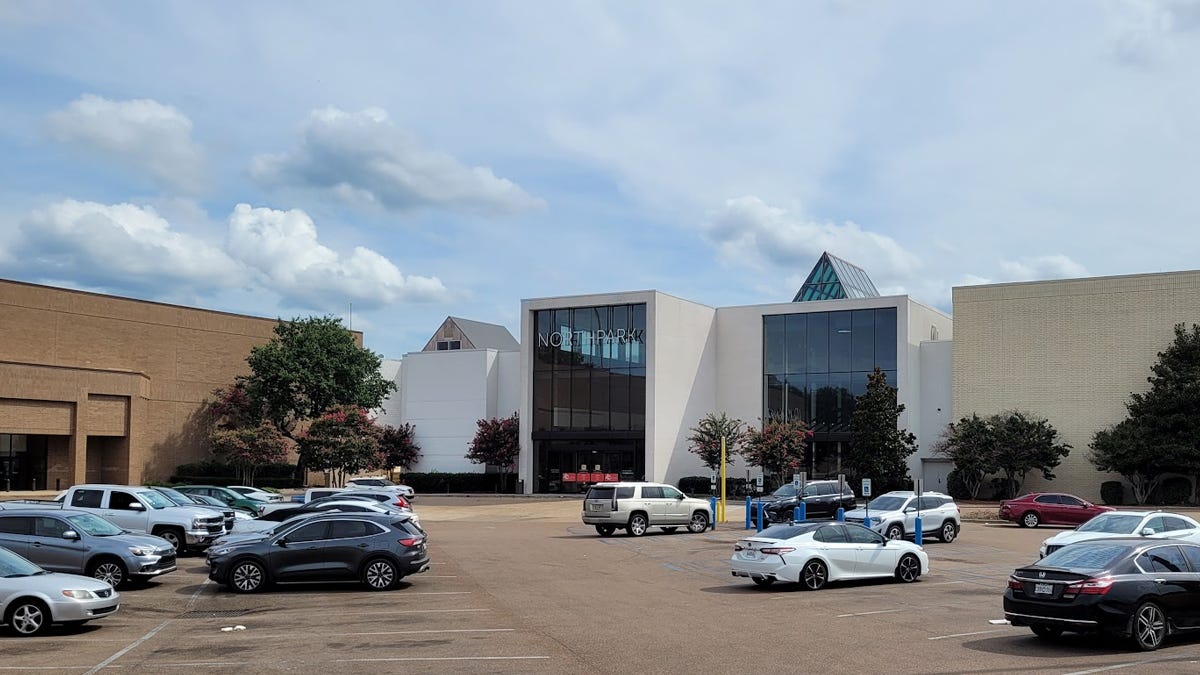
While Metrocenter's fate is all but sealed, just hours before I was able to walk the halls of the other area mall. Yes, the competitor that opened just up the road in Ridgeland a few years after Metrocenter debuted, Northpark is still operating and open for business. And while it wasn't the same as it was when I regularly roamed its tiled floors working at County Seat as a teenager or when I sat on Santa's lap with the girl I would marry to mark our engagement, it was familiar enough.
Passing a 40th anniversary celebration banner hung from the rafters, I took in the recent renovations to the food court that made the mall unrecognizable from my youth. Young families with children enjoying their meals in the sunlight afforded by the new construction and signs warning parents to not leave minors unattended on a Saturday night blurred the lines between past and present. With this mall's future still unwritten, I headed toward the exit as I smiled at the memories I made here and felt a twinge of jealousy for those young families currently making their own.






